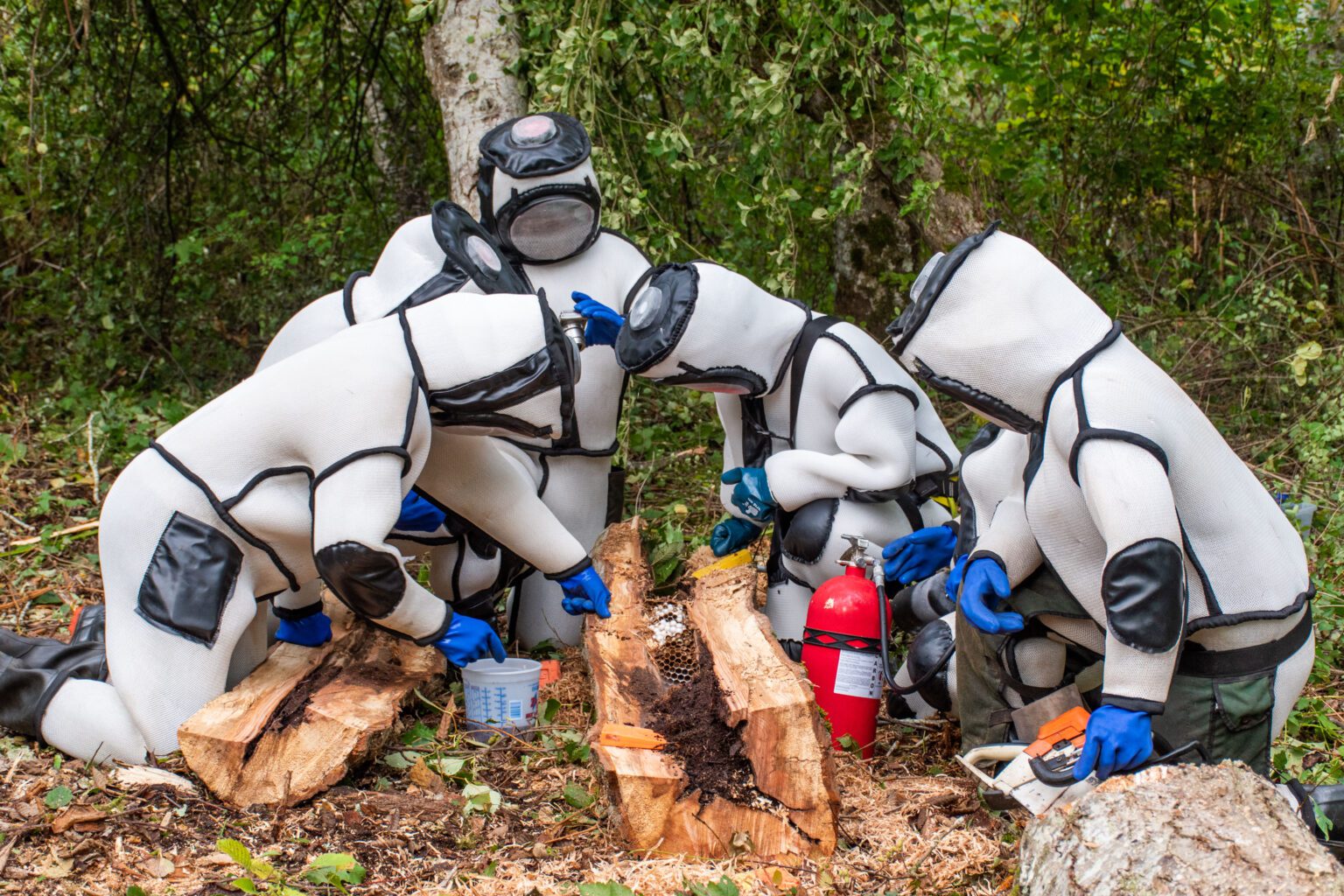The Washington State Department of Agriculture (WSDA) is bracing for another season tracking and trapping Asian giant hornets — often referred to as murder hornets — in Whatcom County, with plans to deploy more than 1,000 traps around Lynden, Blaine and Bellingham.
Almost all of the Asian giant hornets in the U.S. have been detected in Whatcom County, where the first nest in the country was discovered in 2020. Three more nests were detected and destroyed throughout 2021, one in August and two in September. A couple of lone bugs have been found further south, including a dead hornet in Snohomish County last year.
The Asian giant hornet is catastrophic for local bee populations and can decapitate an entire hive of bees in just a couple of hours. The species is native to Japan and is the largest hornet in the world at about 2 inches in length.
“It only takes a handful of Asian giant hornets to go to a hive and completely wipe out all of the adult [bees] in a matter of hours,” said Karla Salp, WSDA’s acting communications director. “We’re talking about thousands and thousands of bees that can be killed in just a matter of hours.”
Local residents are also vital to the detection and research process, said Sven Spichiger, WSDA managing entomologist, during a press conference Tuesday. This year, the department is asking locals to participate in tracking as “citizen scientists” through the “Adopt a Wasp” project, where residents can report paper wasp nests that are on their properties.
“We’re asking citizens who want to participate, basically, to adopt [a paper wasp nest] on their property, report that location to WSDA on our online application, and simply check back in once a week to tell us how it’s doing,” he said.
The paper wasp nests, often found on the eaves or windows and door frames of houses, are a helpful tool for tracking Asian giant hornets. In the past, Spichiger said the hornets have been spotted killing and feeding on paper wasps in the nests.
The goal: three years without any confirmed sightings or trappings in the county.
“We can expect to call [the hornets] eradicated when we have three consecutive years with no detections,” Spichiger said during Tuesday’s press conference. “I’ll knock wood here, but … if we do not find anything this season, and two more seasons after that, then we’ll call it eradicated.”
Though the department has received reports of possible Asian giant hornet activity this year, none of them have been confirmed. One case near Blaine, reported to the department over the weekend, remains “suspicious.”
“There is no specimen and there is no photo,” Salp said. “Normally, if somebody doesn’t provide a photo or a specimen or a video or something like that that we can confirm, they kind of drop in priority for us, but this one is a bit higher priority because it’s in a location where we know they have been the past two years.”
Researchers at the WSDA said it’s still a bit early in the season for Asian giant hornet activity, particularly following the region’s wet and cold spring.
“Across the board, not just for Asian giant hornets, we’re seeing a delay in activity,” Spichiger said during the press conference. “That is related, basically, to the strange weather that we’ve had throughout the months of April and now mostly through May as well.”
Researchers are struggling to learn more about the destructive insect because as soon as they identify specimens or a nest, they have to eradicate it. They do know the hornets are resilient, able to handle extremely low temperatures and other things “we thought would kill them,” Salp said.
“It’s always in our best interest to eliminate these as soon as we find them,” Spichiger said. Letting the nests survive, he said, would be like “letting a fire go to watch how it burns.”
Washington residents can report Asian giant hornet sightings to the WSDA using a Hornet Watch Report Form, via email to hornets@agr.wa.gov or via phone at 800-443-6684.




